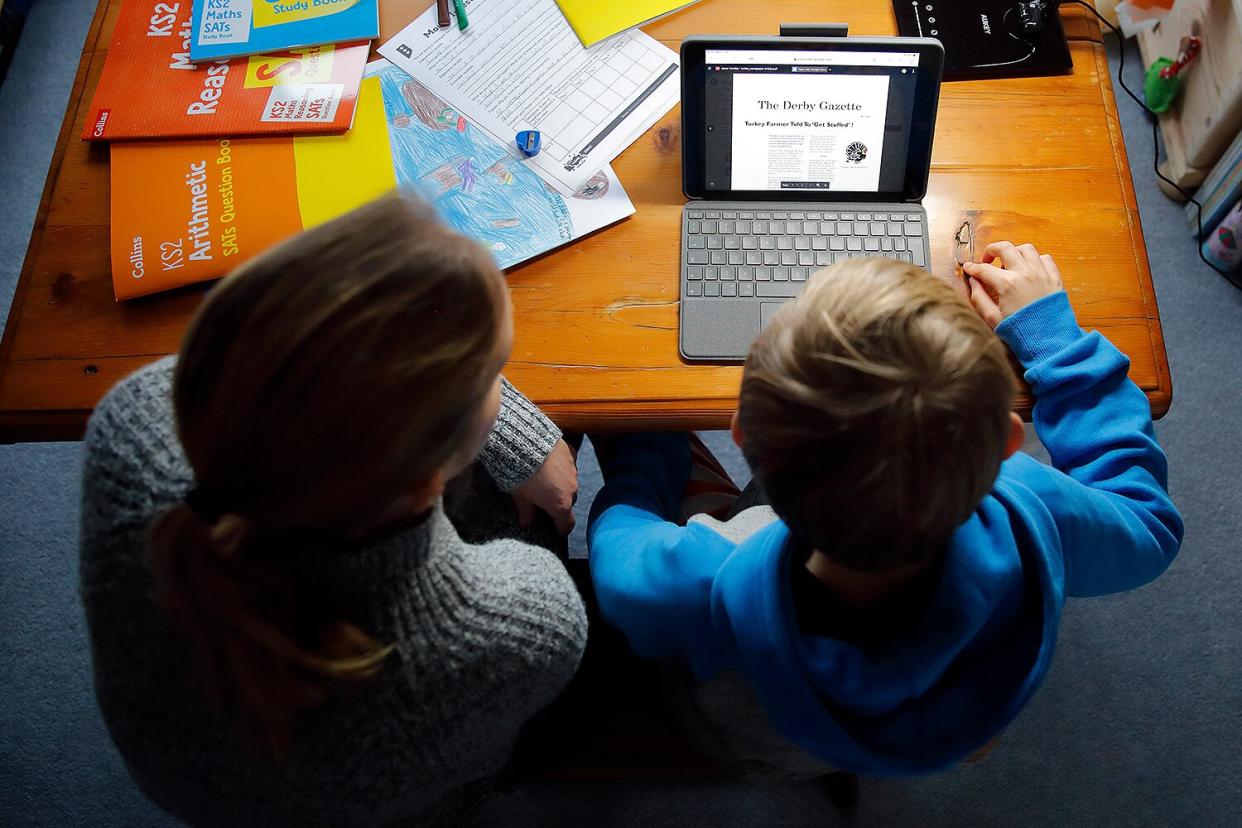Is Your Child's Education Suffering as COVID Surges? Here Are Tips Straight from Experts

Max Mumby/Indigo/Getty Images
Early this week, 20 percent of the students and teachers were absent from school in the Springfield, Missouri school district where Cicely Woodard teaches high school math. A COVID-19 spike is to blame. With a dire shortage of substitutes, the district announced Tuesday it was canceling classes for the rest of the week.
"It brings back all of those memories of March of 2020 when we were not in school at all," Woodard — a former Tennessee teacher of the year — tells PEOPLE. "I heard many of my students say, 'Oh, I don't want to go back to that. That was really hard for me to not be able to be in school.'"
Undoubtedly, the pandemic continues to take a toll on children's learning, with one in six parents reporting that their child's school or day care was shut down in the past few weeks, according to a national poll from Axios and Ipsos released on Jan. 11.
A report from McKinsey &Co, a New York-based consulting firm, also reflects the pandemic's toll: it estimated that students nationwide entered the 2021 school averaging four to five months behind where they normally would be in reading and math. That gap, according to the report, widened to seven months in students from low-income schools.
"It is a very challenging time," Woodard says, adding that the loss of much-needed connection between students and teachers due to the pandemic's at-home and hybrid instruction "impacts their learning."
RELATED: Heart Palpitations, Eczema and Judgment: Parents Speak Out on 'Exhausting' Toll of COVID Stress
Woodard is so concerned about students nationwide catching up and thriving that she joined the advisory board of Teachers1on1, an online tutoring service launched this week that connects kids with certified teachers across the country in a wide variety of subjects. (The program's selection process for its tutors is tough — less than 2% of teachers who apply are accepted, the company said.)
Below, both Woodard, who is also a mom of two boys, 15 and 12, as well as Christopher Lohse, a former science teacher and principal who is now chief academic officer of Teachers1on1, share pieces of advice for parents trying to help their kids.
Listen to Your Child
"Instead of 'How was your day?' 'Fine. Good.' Those would be the responses that you get," says Woodard, "but ask really specific questions like, 'What did you experience in class today? What was learning like? What was something funny that happened?' And really try to get the students to talk about school, and to talk about what they need."
Many Factors Can Lead to Lagging Performance.
"Don't panic but do take it seriously," says Lohse. "There can be any number of reasons why a child might be performing poorly. It could be pandemic related. It could be that they themselves are having a health issue. It could be that there's suddenly something that's cropped up."

Cicely Woodard Cicely Woodard
Initiate Conversations With Your Child's Teacher
"I have had many parents who have reached out and said, 'I'm not sure what's going on, but right now it seems like my student is struggling. What can I do?' And all of a sudden, I'm able to give them some really specific suggestions, some specific things that they can do for their child," says Woodard. "Teachers are very good at assessing student learning, understanding what they know right now and then being able to advance them to the goal of the lesson, or the goal of whatever they're challenged with in the moment."
It May Be Scary to Reach out, but Do It Anyway
"Families may feel as though they don't have the authority to be able to challenge or have a conversation with teachers about their child's performance," says Lohse. "I can even speak to that from my own experience. There were times when I would call families and they would say, 'Oh, I'm so glad you reached out because I've actually felt a little bit ashamed of what's been going on with my child's performance in school and I was assuming that people were making judgments about my parenting.'"
RELATED VIDEO: Mother Uses a Microphone to Wish Her Son a Great Day at School
Teachers Want to Help
"Teachers are in the business of helping students," says Woodard. "I would suggest email is a great way to reach out to teachers because then they can check those emails when they're available, and at the best time for them."
Consider Tutoring
"In terms of students who are struggling academically, research says that high quality one-on-one tutoring can definitely help them," Woodard says.
"For a lot of students, they need high-quality tutoring, access to tutoring that is one-on-one, with teachers who understand content," she adds. "That's one of the reasons why I serve on the Teachers1on1 board, because I really believe that students can benefit from those kinds of relationships."
RELATED: Stephen A. Smith Says Breakthrough COVID-19 Hit Him 'Differently': 'I'm Still Not 100%'
Seek Available Financial Support for Tutoring
If your child needs help but you can't afford tutoring, schools are in a better position to help due an influx of federal pandemic-related school funding, says Lohse. "Parents can prevail upon their local school to say, 'Is there some way you could take care of the cost associated with this service for my child?'" Teachers1on1, for example, will be doing a pilot program with some schools in Los Angeles where they will be giving away 500 hours of free tutoring, with plans to expand access in other school districts across the country, he says.

